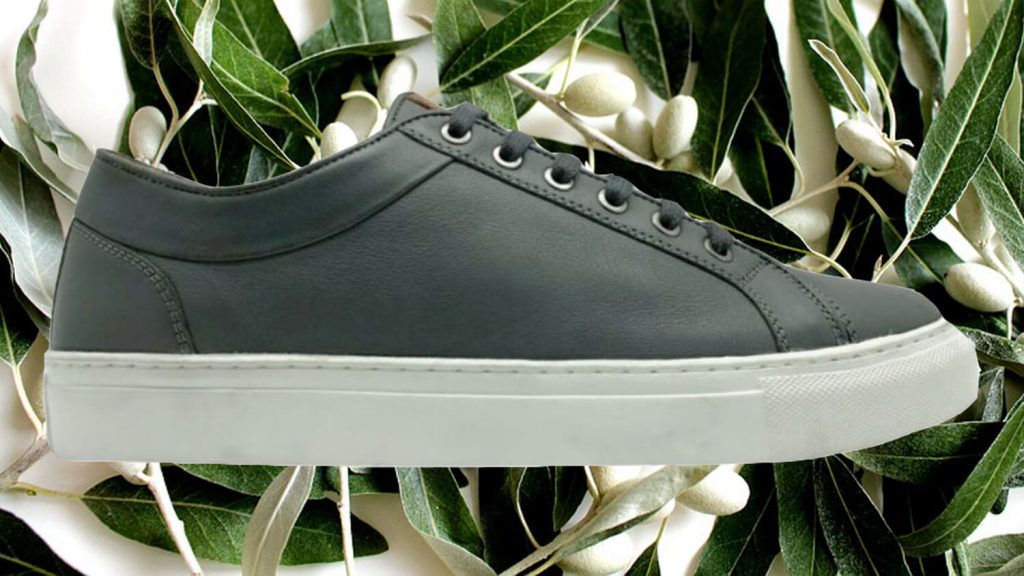Germany-based footwear brand thies creates vegan shoes out of certified organic cotton, recycled PET bottles, and cork.
Thies has been making footwear since 1856.
The sustainable collection is part of thies’ “special focus on our environment,” it says on its website.
It’s also using a method called “wet-green.” The active ingredient of wet-green, known as OBE, is collected from the leaves of olive trees with a method similar to brewing tea.
The process is sustainable and helps to reduce food waste in the olive industry. In Europe, roughly 12,000,000 tons of olives are harvested every year, according to natural leather company wet-green, that patented the method. After the harvest and pruning of olive trees, ten percent of the harvest weight remains.
Thies writes online, “no tree is felled, no plant sacrificed and no fields cultivated which would otherwise be used to produce food.”

Fellow German shoe brand nat-2 uses repurposed coffee grounds to make its leather shoes that are entirely free from animal products. The shoes contain up to 50 percent recycled coffee and hold a natural coffee scent. Like thies, nat-2 uses plastic bottles and cork in its designs, as well as mushroom and hay.
Dutch designer Tjeerd Veenhoven crafts, by hand, textured vegan leather rugs made out of palm leaves. And luxury fashion brand Hugo Boss makes men’s shoes out of pineapple leather.
Leading cruelty-free fashion designer Stella McCartney also makes a range of vegan footwear. She recently teamed up with Adidas for a vegan version of the iconic Stan Smith sneaker. Most recently, celebrity Miley Cyrus was seen wearing McCartney’s over-the-knee vegan leather boots.
Designer Don Kwaning uses linoleum – the material often found in budget flooring – to make fabric similar to rumen leather, conventionally made from a cow’s stomach. Kwaning’s “lino leather” is said to be as soft as rumen leather and more affordable.
Innovation across the vegan leather field is reducing the need for animal-derived leather in footwear and other products. The plant-based leather industry is projected to be worth $85 billion by 2025.
Image Credit: thies
Become a CLUBKINDLY member today!



